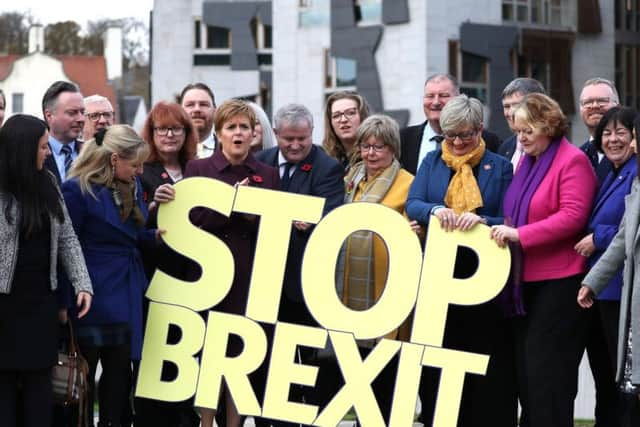Why this Brexit election is such good news for the SNP
Two years later, when the SNP’s share of the vote slumped to 36.9% and they lost 21 of their MPs, the dominant narrative was that Nicola Sturgeon had misread the public mood, responding to Brexit by pushing for indyref2.
But according to polling guru Professor Sir John Curtice, the issue that divided the Scottish electorate in 2017 and damaged the SNP most wasn’t independence - but Brexit.
Advertisement
Hide AdAdvertisement
Hide AdOne third of 2015 SNP voters backed Brexit in the referendum the following year. It was those voters - particularly in parts of the country where anti-EU sentiment was strongest, like the northeast - that boosted the Conservatives and helped produce their unexpected Scottish breakthrough.


Elsewhere, in the central belt, SNP supporters stayed home and Labour was able to pick up six more MPs despite winning just 10,000 extra votes.
The SNP are only polling 2-5% ahead of their 2017 result, but the expectation is that they will pick up at least ten seats. Why? Curtice explains that again, it’s the Brexit divide rather than indyref2 that is fuelling the change.
The share of Leave voters among the SNP’s support has fallen; it is a much stronger Remain party now than it was in 2015. That helps consolidate the Tory position in Scotland, and adds to hopes that they might hold on to several of their Scottish seats on 12 December. It also consolidates the SNP position in the strongest Remain-voting areas of Scotland - and that’s most of the country.
It is also what gives nationalists hope that they can win a second independence referendum. “Support for independence now is 49 per cent, it has gone up amongst Remain voters,” Curtice says.
“It is difficult to avoid the conclusion that the Brexit impasse is beginning to push Scotland slightly in a Pro-Yes direction because it is primarily Remain voters who have shifted.
“There is now a much stronger relationship between opposition to Brexit and your attitude to independence.”
If the Remain vote stays energised even after Brexit, then through next year's transition phase, the SNP will hope to keep support for independence bubbling at the psychological 50/50 level.